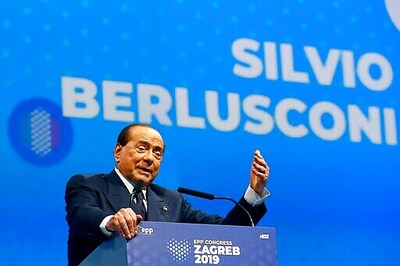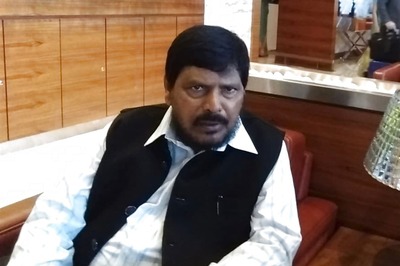
views
Karachi: Pakistan's stocks are set to tumble on Monday as the political turmoil and violence unleashed after the killing of former prime minister Benazir Bhutto threatens to scare off foreign investors and damage the economy.
Bhutto was assassinated on Thursday ahead of elections scheduled for January 8, throwing into doubt a smooth transition to civilian-led democracy after almost a decade of military-backed government under President Pervez Musharraf.
"The likelihood is that foreign portfolio investors would start pulling out. If that happens that would mean a serious amount of selling," said Nasim Baig, chief executive of Arif Habib Investments which manages $392 million in funds.
"This time we may try to conserve cash in case our investors want to cash out." Karachi, the biggest city, financial capital and main port, has been paralysed by a spasm of street violence. Shops have been shuttered, petrol stations have closed and railways have been attacked by angry mobs, bringing transport to a standstill.
A promising investment story less than a year ago, Pakistan is now gripped by fears of capital flight if security worsens. There are also concerns that capital inflows from the Gulf, a substantial source of investment in Pakistani state assets and real estate, may also dry up.
"If the situation prolongs, there will be capital outflows and we will probably see Dubai market doing well because there is money flowing from Pakistan," said Shoaib Memon, chief executive of Al Falah Securities, which is owned by the Abu Dhai Group, one of the largest foreign investors in Pakistan.
Funds wary
The Karachi stock market has gained 47 percent this year, outperforming major regional markets.
The MSCI Asia Pacific index (excluding Japan) is up a third this year. The gains followed above-average annual economic growth of around 7 percent for the past three years, the sale of state assets and a renewal of confidence in Pakistan following its alliance with Washington in the U.S. war on terror.
Growth is targeted to grow at 7.2 percent in the fiscal year to June 2008, but many economists doubt it can be achieved, given the turbulent political situation even before Bhutto's death. Musharraf imposed a state of emergency to ward off unrest surrounding a resurgent judiciary and to fight rising Islamic militancy in the region bordering Afghanistan.
Credit markets also underlined waning sentiment for Pakistan last week when on Friday the country's five-year credit default swaps -- a kind of insurance policy against default -- widened by 100 basis points to 480 basis points.
Standard & Poor's Rating Services also said on Friday that Pakistan's sovereign credit ratings could be cut if Bhutto's assassination heightened violence and political turmoil. Brokers expect the stock market to fall to the limit of five percent of Monday.




















Comments
0 comment